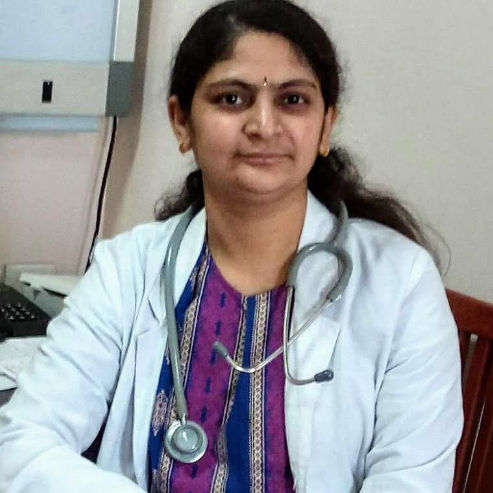(34 doctors)

Dr. Tripti Dubey
Obstetrician and Gynaecologist
23 Years • MBBS, MS ( Gynecology & Obstetrics).
Mumbai
Apollo Hospitals CBD Belapur, Mumbai
100+ recommendations

Dr Bhawna Garg
Gynaecological Oncologist
26 Years • MBBS, MS, (PGI MS ROHTAK) FELLOWSHIP GYNECOLOGY ONCOLOGY, (CANCER INSTITUTE CHENNAI)
New Delhi
Apollo Hospitals Indraprastha, New Delhi

Dr. Kirty Nahar
Obstetrician and Gynaecologist
25 Years • MBBS, M.S. Obst & Gynaecology, FICOG. Fellowship Obstetrics & Gynaec. Ultrasound ISUOG Certified Sonologist. High Risk Pregnancy & Infertifilty Specialist. Sr. Consultant - Obst & Gynaecology.
Ahmedabad
Apollo Hospitals Gandhinagar, Ahmedabad

Dr. Vineet Mishra
Infertility Specialist
36 Years • MD, Phd, DSc
Ahmedabad
Apollo Hospitals - Gandhinagar, Ahmedabad, Ahmedabad

Dr Jaya Kumar Agarwal
Obstetrician and Gynaecologist
25 Years • MBBS , DGO , DNB (obstetric and gynecology) DGE diploma in Gyne endoscopy (Germany )
New Delhi
Apollo Hospitals Indraprastha, New Delhi
Dr. Moksha Prasuna
Gynecologic Surgeon
32 Years • MBBS,DGO,MS(GENERAL SURGERY) , FMAS,ISCP
Hyderguda
Apollo Hospitals Hyderguda, Hyderguda

Dr. M Padmaja Bhattacharya
Obstetrician and Gynaecologist
25 Years • MBBS(Cal), MD(Cal), (Obs & Gyn), FRCOG(London),,FICRS (Fellowship in Robotics Surgery) Senior Consultant Obstetrics & Gynaecology.
Kolkata
Apollo Multispeciality Hospitals , Kolkata, Kolkata
200+ recommendations

Dr Shruti I
Obstetrician and Gynaecologist
7 Years • MBBS, MS (OBSTETRICS & GYNAECOLOGY)
Bangalore
Apollo Clinic Bellandur, Bangalore

Dr. Pradnya Gangarde
Obstetrician and Gynaecologist
6 Years • MBBS, MS (G & O)
Pune
Apollo Clinic, Viman Nagar, Pune

Dr. Saraswathi Girish
Obstetrician and Gynaecologist
21 Years • MBBS , DNB,FRM(Fellowship in Reproductive Medicine)
Bengaluru
Apollo Clinic, Sarjapur Road, Bengaluru

Dr. Dershana P Rajaram
Obstetrician and Gynaecologist
35 Years • MBBS, DGO
Bangalore
Apollo Clinic Bellandur, Bangalore
Dr.swathi Gogineni
Obstetrician and Gynaecologist
16 Years • MS, DNB, FMAS, DMAS, Fellow in Infertility
Manikonda Jagir
Apollo Clinic, Manikonda, Manikonda Jagir

Dr. Pallavi Swamigari
Gynecologic Surgeon
15 Years • MBBS, MS Obstetrics & Gynaecology
Hyderabad
DR PALLAVIKISHORE’S WOMEN CARE AND GENERAL CLINIC, Hyderabad

Dr. Revathi S Rajan
Obstetrician and Gynaecologist
24 Years • MBBS, DGO, DNB.FFMM
Bengaluru
Apollo Clinic, JP nagar, Bengaluru

Dr. Biswa Prakash Choudhury
Gynecologic Surgeon
12 Years • M.S.OBST. & GYN
Cuttack
Navjivan Clinic And Nursing Home, Cuttack
Gynaecologic Surgery
Booking an appointment with a top gynaecologic surgeon is now easier than ever with Apollo 24|7. Our user-friendly platform allows you to schedule an online or in-person consultation with experienced gynaecologic surgeons at trusted hospitals and clinics. Choose from a wide range of convenient appointment slots that fit your schedule. With Apollo 24|7, you can access the expertise of leading gynaecologic surgeons who specialise in diagnosing and treating various conditions affecting the female reproductive system. Take the first step towards better health by booking your appointment today.
What is Gynaecologic Surgery?
Gynaecologic surgery encompasses various surgical procedures aimed at treating conditions affecting the female reproductive system, including the uterus, ovaries, fallopian tubes, and other associated structures. This speciality is crucial in addressing a wide range of issues, from benign conditions like ovarian cysts and uterine fibroids to malignancies such as cervical and ovarian cancer.
The procedures may range from minimally invasive laparoscopic surgeries to more extensive operations like hysterectomies. The importance of gynaecologic surgery lies not only in treating specific diseases but also in improving the overall quality of life for women, influencing aspects of general health, fertility, and pre and post-menopausal health.
Who is a Gynaecologic Surgeon?
A gynaecologic surgeon is a specialist trained to perform surgeries on the female reproductive system. These professionals are qualified obstetricians/gynaecologists who have undergone additional training in the various surgical techniques needed to treat conditions affecting women's reproductive organs. Their expertise covers a wide spectrum of procedures, from diagnostic laparoscopy to complex oncological surgeries.
Gynaecologic surgeons manage conditions such as fibroids, endometriosis, pelvic prolapse, and reproductive system cancers. Their advanced training enables them to offer both preventative and therapeutic options that play a critical role in managing women's health across different stages of life.
What Does a Gynaecologic Surgeon Do?
The gynaecologic surgeon’s work is crucial in managing both benign and malignant issues, impacting a broad spectrum of reproductive health concerns. The responsibilities of these specialists are multifaceted, involving various daily activities and comprehensive care.
Diagnosis and Consultation: The day typically begins with consultations, where they diagnose conditions based on symptoms, medical history, and diagnostic tests such as ultrasounds or biopsies.
Surgical Procedures: They perform a range of surgical interventions from minor, minimally invasive procedures like laparoscopies to major surgeries such as hysterectomies. Each requires precise skill and knowledge of female anatomy.
Postoperative Care: Post-surgery, they monitor patients' recovery, managing any complications and ensuring effective pain relief and healing. This involves regular follow-ups and adjustments in treatment plans.
Collaborative Care: Gynaecologic surgeons often work in multidisciplinary teams, collaborating with other specialists to provide holistic care, especially in cases involving oncology or fertility.
Educational Roles: Many gynaecologic surgeons also engage in educating medical students and residents, contributing to the future of the field through teaching and mentoring.
Research Contributions: In addition to clinical duties, they may participate in research to develop new surgical techniques or treatment protocols, continually advancing the field of gynaecological surgery.
Through these activities, gynaecologic surgeons provide essential care that enhances the reproductive health and general well-being of their patients.
What are the Other Sub-specialities of Gynaecologic Surgery?
Gynaecologic surgery encompasses a range of sub-specialities, each targeting specific aspects of women's reproductive health. Here's a look at these vital sub-specialities:
Laparoscopic Surgery: This minimally invasive technique uses small incisions and a camera to perform surgeries, reducing recovery time and risks associated with open surgeries. The doctor for uterus surgery often performs laparoscopic surgery for conditions like hysterectomies and myomectomies.
Robotic Surgery: Enhancing the capabilities of laparoscopic techniques, robotic surgery offers greater precision and flexibility, often used by uterus surgeons for complex procedures within confined spaces of the pelvic area.
Pelvic Floor Surgery: Aimed at correcting pelvic floor disorders such as prolapses and incontinence, this surgery is crucial for restoring the quality of life in affected women. Doctor for ovarian cyst surgery may also address related pelvic conditions.
Hysteroscopic Surgery: This procedure involves inserting a small telescope through the cervix into the uterus, allowing the surgeon for fibroid removal to operate without incisions, used for removing fibroids or polyps and investigating abnormal bleeding.
Vaginal Surgery: Focused on the vaginal area, this includes repairs and reconstructions, often post childbirth or injury. The ovarian surgery doctors might perform this surgery in conjunction with other reproductive procedures.
Myomectomy: Specifically carried out to remove uterine fibroids, this procedure is a speciality of surgeons focusing on maintaining fertility and alleviating symptoms like heavy bleeding.
Endometrial Ablation: This procedure is used to treat excessive menstrual bleeding by destroying the lining of the uterus. It is a less invasive alternative to hysterectomy and preserves the uterus.
Ovarian Cystectomy: Involves the removal of cysts from the ovaries, performed by an Ovarian cyst removal specialist. It is crucial for alleviating pain and preventing complications related to large or persistent ovarian cysts.
Cervical Conization: A critical procedure for diagnosing and treating precancerous conditions of the cervix, this involves removing a cone-shaped section of abnormal tissue.
Fertility Preservation Surgery: Often a choice for women diagnosed with cancer, this surgery aims to preserve eggs or ovarian tissue before treatments like chemotherapy, performed by specialists in ovarian surgery.
Each of these sub-specialities plays a vital role in enhancing reproductive health, employing advanced techniques to ensure effective outcomes and improved patient care.
What are the Gynaecologic Surgery Examinations or Tests Performed by the Gynaecologic Surgeon?
Gynaecologic surgeons perform a variety of diagnostic tests and examinations to assess and diagnose conditions affecting the female reproductive system. These tests are critical for determining the most appropriate surgical or medical treatment for each patient.
Here are some of the most common examinations and tests:
Pelvic Exam: This is the primary examination for all gynaecological evaluations. The surgeon examines the external and internal genital areas to check for abnormalities or signs of disease.
Pap Smear: Used primarily to screen for cervical cancer, this test involves collecting cells from the cervix to detect precancerous or cancerous changes.
Human Papillomavirus (HPV) Test: Often performed alongside a Pap smear, this test identifies the presence of HPV, which can lead to cervical changes and cancer.
Ultrasound: This imaging test uses sound waves to create pictures of the internal organs. Transvaginal ultrasound provides detailed images of the uterus, ovaries, and fallopian tubes, essential for diagnosing cysts, fibroids, and other anomalies.
Endometrial Biopsy: This procedure involves taking a small sample of the lining of the uterus to test for endometrial hyperplasia or cancer.
Hysteroscopy: Using a thin, lighted tube inserted through the vagina into the uterus, this allows the surgeon to observe the inside of the uterus for abnormal growths or structural anomalies.
Laparoscopy: A minimally invasive surgery using a laparoscope to view the pelvic organs. It can diagnose problems such as endometriosis, pelvic inflammatory disease, and ectopic pregnancy.
These tests are fundamental in guiding the treatment decisions in gynaecologic surgery. If you need these tests or suspect you might need them, it’s advisable to book gynaecologic surgeon for a detailed consultation and accurate diagnosis.
What are the Common Conditions & Diseases that Gynaecologic Surgeons Treat?
Gynaecologic surgeons address a wide range of reproductive health issues. Here are the top 15 conditions they commonly treat:
Fibroids: Non-cancerous growths in the uterus that can cause heavy menstrual bleeding and pelvic pain.
Endometriosis: A painful disorder where tissue similar to the lining inside the uterus grows outside the uterus.
Ovarian Cysts: Fluid-filled sacs on the ovary, often benign but can cause swelling and pain if ruptured.
Pelvic Organ Prolapse: When pelvic organs like the bladder drop from their normal position and bulge into the vagina.
Urinary Incontinence: Involuntary leakage of urine, a common issue post-childbirth.
Menorrhagia: Excessively heavy or prolonged menstrual periods.
Cervical Dysplasia: Pre-cancerous changes in the cervix detected via Pap smears.
Uterine Prolapse: The descent of the uterus into the vaginal canal.
Polycystic Ovary Syndrome (PCOS): A hormonal disorder causing enlarged ovaries with small cysts.
Gynaecological Cancer: Includes cancers of the uterus, cervix, ovaries, and vulva.
Chronic Pelvic Pain: Persistent pain in the lower abdomen, which can have various gynaecological and non-gynaecological causes.
Ectopic Pregnancy: A pregnancy that occurs outside the uterus, typically in a fallopian tube.
Vaginal Infections: Various infections causing irritation, discharge, and discomfort.
Menopause-Related Disorders: Issues related to the transition into menopause, including hot flashes and vaginal dryness.
Reproductive Tract Infections (RTIs): Infections that affect the reproductive system, causing discomfort, discharge, and pain.
Reasons to See a Gynaecologic Surgeon
There are several compelling reasons to consult a gynaecologic surgeon. If you experience symptoms such as severe pelvic pain, abnormal bleeding, or signs of a pelvic mass, it's crucial to seek specialist care. Here are the primary reasons:
Abnormal Bleeding: Unusually heavy or irregular menstrual cycles can indicate underlying health issues.
Pelvic Pain: Persistent or severe pain in the pelvic region might require surgical intervention.
Postmenopausal Symptoms: Symptoms like severe vaginal dryness or bleeding after menopause need specialist attention.
Abnormal Pap Test Results: Indicates potential precancerous conditions that might require surgical procedures.
For convenient access to expert advice and treatment, consider an online gynaecologic surgeon consultation.
What Types of Procedures do Gynaecologic Surgeons Perform?
Gynaecologic surgeons perform a diverse range of procedures that can be broadly categorised into therapies and surgeries. These procedures are vital for diagnosing, treating, and managing various conditions affecting the female reproductive system.
Top Therapies in Gynaecology
Hormonal Therapy: Used to manage symptoms of menopause, menstrual disorders, and endometriosis by regulating hormone levels.
Pain Management Techniques: Includes pharmacological treatments and physical therapy to manage chronic pelvic pain.
Intrauterine Devices (IUD) Insertion: A contraceptive device inserted into the uterus to prevent pregnancy.
Cervical Intraepithelial Neoplasia (CIN) Treatment: Application of chemical agents to treat precancerous changes in the cervix.
Pelvic Floor Rehabilitation: Therapeutic exercises and techniques to strengthen the muscles of the pelvic floor.
Top Surgeries in Gynaecology
Hysterectomy: Surgical removal of the uterus, performed for various medical reasons including fibroids and cancer.
Laparoscopic Surgery: Minimally invasive surgery used for diagnostics, and treating conditions like cysts, endometriosis, and hysterectomies.
Cesarean Section: A surgical procedure to deliver a baby through incisions in the abdomen and uterus.
Myomectomy: Removal of fibroids from the uterus, preserving the uterus and fertility.
Oophorectomy: Removal of one or both ovaries, often performed to treat ovarian cancer or severe endometriosis.
Vaginal Reconstructive Surgery: Repairs and reconstructs the vaginal area and related structures, often post childbirth or injury.
Endometrial Ablation: Destroys the lining of the uterus to treat abnormal uterine bleeding.
Colposcopy and Biopsy: Examining the cervix, vagina, and vulva for diseases and taking samples of tissues if necessary.
Salpingectomy: Removal of one or both fallopian tubes, typically for ectopic pregnancy or as a preventive measure against cancer.
Bartholin's Cyst Surgery: Treatment for cysts that form at the vaginal opening.
Understanding these procedures can help in discussing treatment options and understanding the gynaecologic surgeon fee associated with each type of surgery or therapy.
Why Choose an Apollo 24|7 Gynaecologic Surgeon?
Apollo 24|7 gynaecologic surgeons are highly qualified and experienced in providing comprehensive care for a wide range of reproductive health concerns. Our specialists offer personalised treatment plans tailored to each patient's unique needs, ensuring the best possible outcomes.
With access to advanced diagnostic tools and cutting-edge surgical techniques, Apollo 24|7 gynaecologic surgeons deliver top-quality care in a compassionate and supportive environment. Patients can easily book consultations online or in-clinic, enjoying seamless access to expert advice and treatment options for all their gynaecologic health needs.
What to Expect When Visiting a Gynaecologic Surgeon?
Visiting a gynaecologic surgeon can be a pivotal step towards managing and improving your reproductive health. Here's what you can expect during your appointment:
Consultation: Initially, the surgeon will discuss your medical history and any symptoms you're experiencing. This conversation helps to determine the necessary diagnostic tests or treatment plans.
Examination: A physical examination, typically including a pelvic exam, may be performed to assess your condition further.
Diagnostic Tests: Depending on your symptoms, you may undergo several tests such as ultrasounds, biopsies, or blood tests to pinpoint the issue accurately.
Treatment Planning: After diagnosing, the surgeon will discuss potential treatment options with you, ranging from medication to surgery, depending on the condition.
Follow-Up: Arrangements for follow-up visits to monitor your progress or post-operative care will be made.
For reliable information, consider checking gynaecologic surgeon reviews to choose the best specialist for your needs. Also, you can easily search for a gynaecologic surgeon near me to find qualified professionals in your area.
How Can I Get an Appointment With a Gynaecologic Surgeon?
Booking an appointment with an Apollo 24|7 gynaecologic surgeon is simple and convenient:
Online Booking: Visit the Apollo 24|7 website, select "Gynaecology" as the speciality, and choose a gynaecologic surgeon from the list of available doctors. Select a suitable date and time, and confirm your appointment.
Apollo 24|7 App: Download the Apollo 24|7 app, log in or create an account, and navigate to the "Doctors" section. Select "Gynaecology" and follow the prompts to book your appointment with a gynaecologic surgeon.
Offline Booking: Call the Apollo 24|7 helpline or visit your nearest Apollo hospital to schedule an appointment with a gynaecologic surgeon. Our friendly staff will assist you in finding a suitable doctor and booking a convenient time slot.
Gynecologic Surgeons in top cities
- •Best Gynecologic Surgeons in Bengaluru
- •Best Gynecologic Surgeons in Chennai
- •Best Gynecologic Surgeons in Hyderabad
- •Best Gynecologic Surgeons in Kolkata
- •Best Gynecologic Surgeons in New Delhi
- •Best Gynecologic Surgeons in Mumbai
- •Best Gynecologic Surgeons in Ahmedabad
- •Best Gynecologic Surgeons in Guwahati
- •Best Gynecologic Surgeons in Pune
- •Best Gynecologic Surgeons in Gurugram
- •Best Gynecologic Surgeons in Mysuru
- •Best Gynecologic Surgeons in Bhubaneswar
- •Best Gynecologic Surgeons in Chinagadila
- •Best Gynecologic Surgeons in Hyderguda
- •Best Gynecologic Surgeons in Indore
- •Best Gynecologic Surgeons in Lucknow
- •Best Gynecologic Surgeons in Madurai
- •Best Gynecologic Surgeons in Noida
- •Best Gynecologic Surgeons in Tiruchirappalli
- •Best Gynecologic Surgeons in Visakhapatnam
Related Treatments
- •Treatment for Acne In Periods
- •Treatment for Adenomyosis
- •Treatment for Adolescence To Menopause Care
- •Treatment for Amenorrhoea Treatment
- •Treatment for Bhcg For Pregnancy Detection
- •Treatment for Bleeding During Pregnancy
- •Treatment for Candidiasis
- •Treatment for Care Of Women With Repeated Miscarriage
- •Treatment for Cervical Fibroid
- •Treatment for Child Birth Education
- •Treatment for Choriocarcinoma
- •Treatment for Complicated Pregnancy Treatment
- •Treatment for Contraception Advice
- •Treatment for Diagnosis Of Unexplained Infertility
- •Treatment for Diseases In Pregnancy
- •Treatment for Early Pregnancy
- •Treatment for Endometriosis
- •Treatment for Fanconi Renotubular Syndrome
- •Treatment for Female Infertility Treatment
- •Treatment for Female Sexual Problems
FAQs
What is gynaecologic surgery?
Gynaecologic surgery encompasses various surgical procedures aimed at treating conditions affecting the female reproductive organs, including the uterus, ovaries, and fallopian tubes. These surgeries can address both benign and malignant issues, improving reproductive health and overall wellbeing.
What is the most common gynaecologic surgery?
The most common gynaecologic surgery is the hysterectomy, which involves the removal of the uterus. It is frequently performed to treat conditions like fibroids, endometriosis, uterine prolapse, or cancer. It can significantly alleviate symptoms and improve the quality of life.
What are the risks of gynaecologic surgery?
Risks of gynaecologic surgery can include infection, bleeding, damage to nearby organs, and complications from anesthesia. Long-term risks may involve changes in bowel and urinary functions. The specific risks depend on the type of surgery and the individual’s overall health.
What is the recovery time for gynaecologic surgery?
Recovery time varies widely depending on the type of gynaecologic surgery performed. Minimally invasive procedures may require only a few days to a couple of weeks, while major surgeries like a hysterectomy might need six to eight weeks for full recovery.
What is the success rate of gynaecologic surgery?
The success rate of gynaecologic surgery varies depending on the specific procedure and the condition being treated. Generally, these surgeries are highly successful in resolving or significantly alleviating symptoms, with success rates often exceeding 90% for conditions like benign fibroids and incontinence.
What are minimally invasive gynaecologic surgeries?
Minimally invasive gynaecologic surgeries use small scope devices and tools to operate internally with minimal incisions. These procedures, such as laparoscopic and robotic-assisted surgeries, offer benefits like reduced scarring, postoperative pain, and recovery time compared to traditional open surgeries. Gynaecologic surgeons specialising in these techniques undergo additional training to master these advanced surgical methods.
What is robotic surgery in gynaecology?
Robotic surgery in gynaecology utilises a computer system to control robotic surgical tools, providing gynaecologic surgeons with greater precision and flexibility during surgery, especially for procedures in the pelvic area. This innovative approach requires extensive specialised training and offers numerous benefits to patients, such as faster recovery and less postoperative discomfort.
What is gynaecologic cosmetic surgery?
Gynaecologic cosmetic surgery, also known as aesthetic gynaecology, involves procedures aimed at improving the appearance and function of the genital region. These surgeries, such as labiaplasty and vaginal rejuvenation, are performed by specialised gynaecologic surgeons who have undergone additional training in cosmetic gynaecology techniques to ensure optimal results and patient satisfaction.
How important is anaesthesia in gynaecologic surgery?
Anaesthesia plays a crucial role in gynaecologic surgery, ensuring patient safety and comfort throughout the procedure. Gynaecologic surgeons work closely with anaesthesiologists to tailor the type of anesthesia to each patient's specific medical needs. The choice of anaesthesia can vary depending on the patient's health status and the nature of the surgery.
What are the benefits of innovative gynaecologic surgery techniques?
Innovative gynaecologic surgery techniques, such as robotic-assisted and laparoscopic surgeries, offer numerous benefits to patients. These minimally invasive approaches result in reduced scarring, shorter hospital stays, and faster recovery times compared to traditional open surgeries. By adopting these advanced techniques, gynaecologic surgeons can enhance overall patient outcomes and improve quality of life post-surgery.